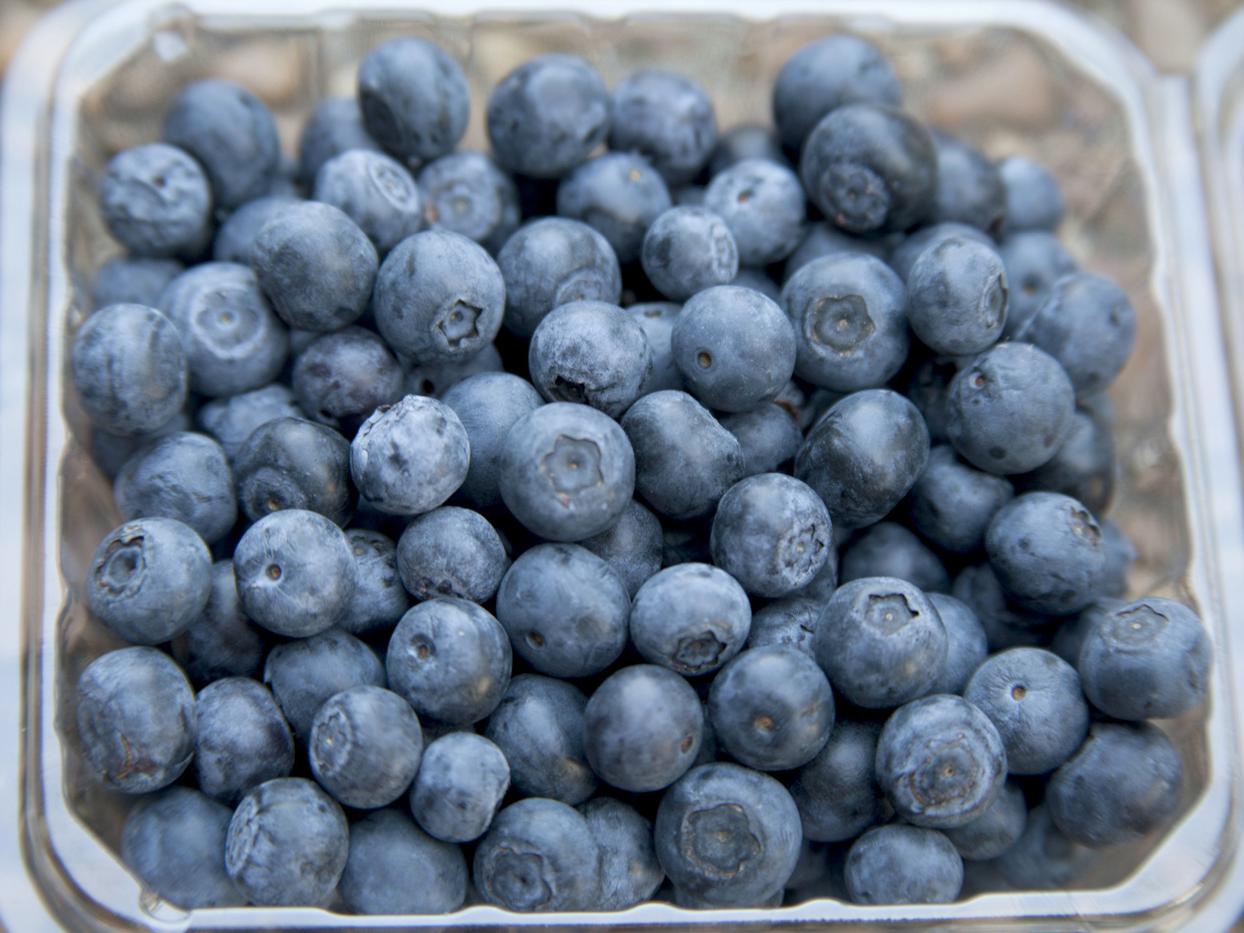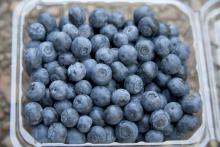Information Possibly Outdated
The information presented on this page was originally released on May 25, 2012. It may not be outdated, but please search our site for more current information. If you plan to quote or reference this information in a publication, please check with the Extension specialist or author before proceeding.
Early blueberry crop thrills state's growers
MISSISSIPPI STATE – Mississippi’s blueberry growers have found their thrill this spring as ideal weather conditions resulted in abundant, high quality fruit.
“Right now, berries are coming in fast and furious in the southern half of the state,” said Wayne Porter, a Mississippi State University Extension Service agent in Lauderdale County who specializes in horticulture. “I was at a farm this morning, and they were bringing them in as fast as they could ship them out and make room for more.”
Mississippi growers saw blooms as early as January and fruit in February due to the warmer-than-usual winter, Porter said.
Typically, Florida and Georgia lead the nation in the production of early blueberries. This year’s crop losses in both states due to freezing temperatures provided an opportunity for Mississippi growers, said Eric Stafne, MSU Extension Service fruit and nut specialist.
“Harvest is about three weeks earlier than usual, and prices have been good as our growers got into the market early,” Stafne said. “The crop so far has been excellent in both Southern highbush and rabbiteye blueberries. A frost event took a small portion of the blooms on early-blooming varieties, but for the most part, the damage was minimal.”
Stafne said Southern highbush harvest began in early April and is now complete, and rabbiteye harvest began in late April to early May.
“Mississippi blueberries are popular and profitable because they are fairly easy to grow and have relatively few pests,” he said. “The fruit can last longer in storage than other, softer fruits. They’re a healthful product, and consumers are picking up on that.”
One challenge facing the state’s growers is finding enough labor to pick the crop.
“The economy is slowing the industry’s growth, but the problems with getting labor will also hamper growth in the long term,” he said. “Many farms do mechanical harvesting, but that is mainly for the processing market, which commands a lower price than the fresh market. If the labor issue can be worked out, then I believe the industry has room to grow in Mississippi.”
Porter said several commercial blueberry growers in the southern half of the state account for the bulk of the acreage recorded.
“In 2011, we estimate about 2,700 acres were planted in blueberries,” Porter said. “The harvest was roughly 2.4 million pounds of fresh blueberries with a market value of $3.8 million, and 2.6 million pounds of frozen berries with a market value of $2.2 million. This doesn’t include the smaller producers or ‘you-pick’ operations, which are harder to track.”
Stafne has started a quarterly newsletter, a blog and a Twitter account to reach growers with timely information, including the discovery of an emerging disease issue affecting a few growers.
“The blueberry industry is strong, and with all of the research showing how good these berries are for humans, it’s an exciting time to part of the industry. Prices are strong for all markets right now, and I don’t see that stopping anytime soon,” Stafne said.
The seventh annual Red, White and Blueberry Festival will be in Ocean Springs on June 2. The fourth annual Blueberry Jubilee in Poplarville takes place June 9.







